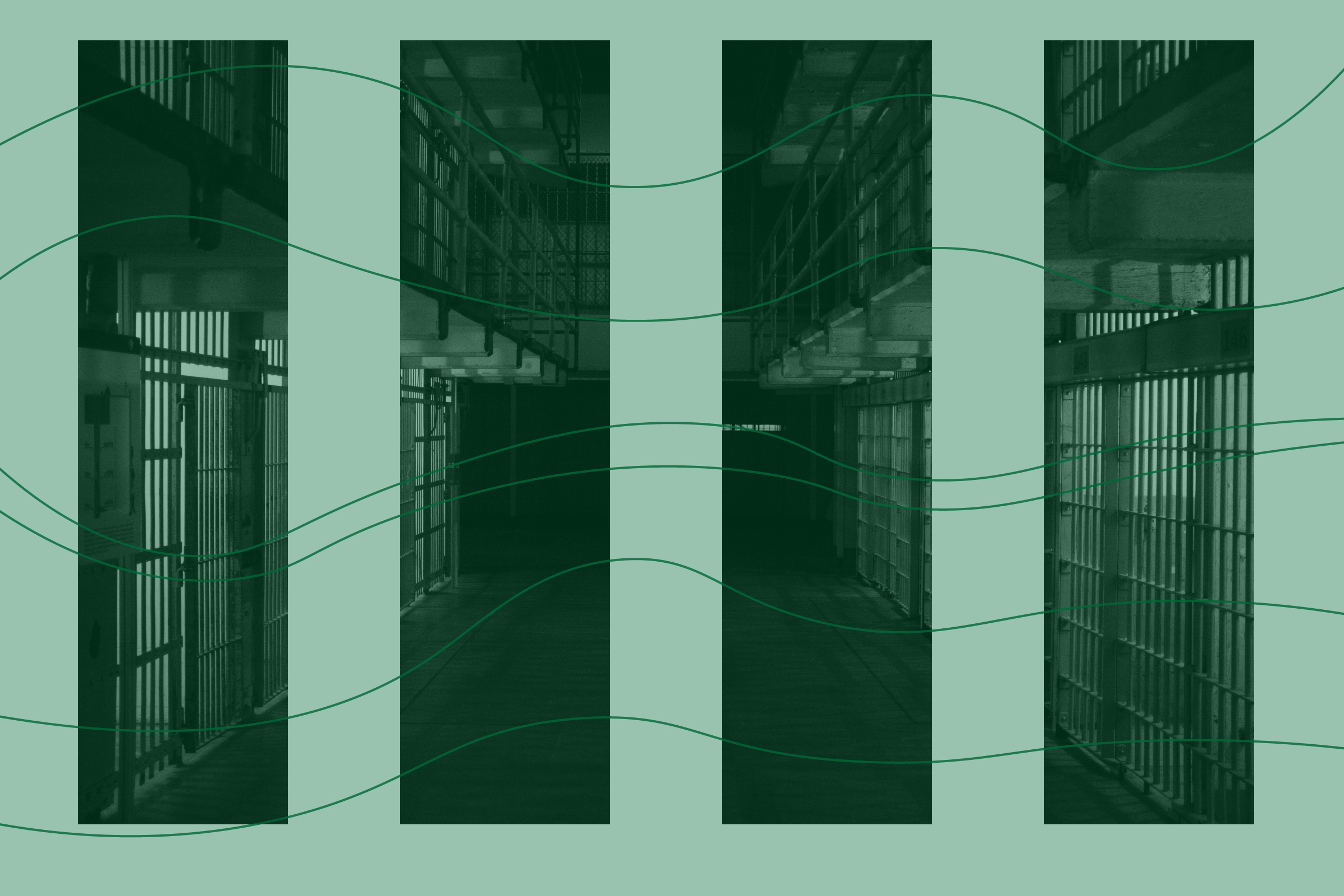
As Good As It Gets
Prison, according to Roger Hallam, co-founder of environmentalist movement Extinction Rebellion (XR), is ‘as good as it gets.’ After serving a six-week jail term in Wormwood Scrubs, Hallam summarised the prison experience in a Facebook post as consisting of ‘sitting on a bed all day reading biographies of Gandhi’ and ‘having my food made for me.’ He then writes: ‘if anything was annoying, it was sitting there thinking about why so many people make up excuses for not taking this step.’
Hallam is speaking from personal experience. But his comments can be seen as a condemnation based entirely on the experience of a white, cisgender, financially secure man. His rhetoric invalidates the struggles of thousands of people who are currently suffering in British jails, and alienates activists who are happy to protest but unwilling to serve a prison term. When Hallam encourages people to get arrested, he is also encouraging vulnerable people to put themselves at risk. Hallam is not the only one responsible for this marginalisation. XR’s original (and now deleted) online prison guide described prison as having the potential to be a ‘moving and maturing experience,’ and fellow founder Gail Bradbrook described arrest as being ‘transcendent’ and ‘spell-breaking.’ In Hallam’s post-release broadcast, he argues that “thousands of people from all backgrounds can do it.” He is only one link in a chain of activists who, by holding the same attitude ignorant of the race, class, and gender struggles of many XR activists, are hindering the movement’s potential to become the larger, more inclusive, and more diverse one that is necessary in order to effectively tackle climate change.
XR has become well known over the past year for its roadblocks and localised acts of civil disobedience – acts that have started to bring about crucial changes. After XR’s April action in London, which brought parts of the city’s transport system to a standstill, the British government finally declared a climate emergency. This was a critical step in the direction of climate justice. The XR movement aims to use widespread civil disobedience to force the government into recognising the impending climate crisis, and to take serious action in response. According to Hallam, in order to catch the attention of the government, “you need about 400 people to go to prison [and] about two to three thousand people to be arrested.” This goal drives him to relay his positive experience of arrest to XR members and urge them to follow his lead.
What Hallam and Bradbrook don’t seem to appreciate are the consequences that imprisonment has on more vulnerable members of society – consequences which can be debilitating. Many inmates lose their accommodation one way or another whilst in prison, a fact that generally goes unacknowledged. Entitlement to housing benefit stops for all prisoners with sentences longer than thirteen weeks, and standard rent contracts continue throughout incarceration. Half of respondents to a 2016 YouGov survey admitted that they would not consider hiring an ex-offender. For many, the duress of prison lasts much longer than the sentence, and asking these people to get themselves arrested excludes and endangers them.
This lack of class sensitivity saturates the rest of Hallam’s Facebook page. His ‘prison update’ posts are littered with generalisations and dismissals of experiences that are not akin to his own. In an earlier post, another member of XR shared that he had escaped a cell which he shared with ‘a drug dealer and a stabber.’ The crass reduction of his cellmates to their crimes (crimes undeniably less palatable to the public than climate activism) indicates a problematic elevation of climate activists over other incarcerated individuals. This practice draws a line between ‘bad prisoners’ and ‘good prisoners’ – those who deserve to be in prison, and those who have nobly sacrificed themselves for the climate movement.
In 2018, Ben Smoke and fourteen other activists broke into Stansted Airport and chained themselves to a plane which had been chartered by the Home Office to deport 60 people to Nigeria, Ghana, and Sierra Leone. For this act of civil disobedience, Ben Smoke was unexpectedly charged with a terror offence that carried a life sentence. Smoke has recently expressed his discomfort at the nature of XR’s discourse around prison. He told the Guardian that ‘to have people like Roger Hallam speaking of prison so casually undermines those who are the poorest or most oppressed in our society whose lives are ripped apart by it.’ This undermining is not solely a tendency of Hallam’s, with Bradbrook also talking of arrest light-heartedly, claiming the only thing she disliked about it was the paperwork. The ability to put complete trust in the consistency of the prison system signifies a privilege that more socially advantaged activists often refuse to acknowledge. Trivialising the prison experience like this is dangerous on two counts: not only does it undermine the prison reform movement in its fight to expose the injustice of the penal system, it also encourages less privileged members of XR to subject themselves to a criminal justice process that is much more likely to destabilise them, potentially irreversibly.
Hallam claims that the objections people have to getting arrested are merely “excuses” spun out of “prejudices” and “unfounded fears”, and dismisses concerns regarding arrest, specifically those voiced by activists of colour. In an interview with Tribune Radio, Hallam responded to a suggestion that people of colour face increased systematic bias from the police: “with all due respect, I think you’re empirically wrong”. By accusing people of colour of exaggerating the institutionalised racism they often face from the police, Hallam sends a wider message of ignorance and intolerance to the wider community of XR. Later in the interview, he went on to claim that there is “strong evidence” that people of colour are treated “basically the same” as white people by the penal system.
This is not the case. In face to face confrontations with the police, figures from 2018 showed that black people were four times more likely to have force used against them. This statistic is particularly damning considering that civil disobedience more often than not involves face to face confrontation with the police. When such statistics are considered, the dismissal of BAME activists’ fears regarding arrest as ‘unfounded’ is unforgivable. Despite this, XR’s original prison guide claimed that ‘most prison guards are black and don’t wish to give you a hard time.’ In reality, according to an official government report from March 2019, 94 per cent of prison guards are white, and only 2.7 per cent are black. The concerns that people have raised about such inconsistencies were dismissed in the Tribune Radio interview as a symptom of the ‘chronically over-critical, radical, and hard left.’
The idea of this ‘chronically over-critical, radical, and hard left’ has been used by other civil disobedience movements to disregard or ostracise disempowered identities as they fight for “the greater good.” The British Suffragettes, cited by XR as an inspiration, are known for winning women the vote in 1918, but what they actually won that year was the right for women above the age of 30 who owned property to vote. Sylvia Pankhurst, daughter of Suffragette founder Emmeline Pankhurst, was expelled from the movement after encouraging working-class women to join the fight. Emmeline believed that suffrage could best be achieved through the efforts of middle-class women only, and that bringing leftist politics into the movement would antagonise the British government and stunt the campaign. Whilst classism excluded less privileged women from suffrage in Britain, racism did the same for American suffrage. The American suffragettes exploited racial politics, using the fact that the black male vote was granted in 1865 to question why educated white women still had not won the privilege. Suffragette Carrie Chapman Catt enticed ambivalent Americans with the promise that “White supremacy will be strengthened, not weakened, by women’s suffrage.” Overriding the rights of one group in order to advocate those of another means that all progress is tainted by regression. Climate justice is a universal cause, and it is essential that the fight for it is equally universal.
Certain members of XR are also guilty of pandering to intolerance as a means of recruitment. In a recent speech, Hallam cited mass immigration as a consequence of global warming, before saying that the environmentalist movement needs to “start talking in terms of tradition, nation, and honour.” Ronan Harrington, another spokesperson for XR, supported these ideas in a recent video entitled ‘What Can Extinction Rebellion Learn from Nigel Farage?’, advising activists to avoid taking “lefty liberal positions” such as “no borders” so as not to alienate far-right allies. Rupert Read, Green Party campaigner and spokesperson for XR, adds to this controversial idea, arguing that ‘net environmental footprint’ is increased by migrants, and that harsher border laws will help to halt climate change. Talking about climate change only in terms of its effect on white British people excludes people of colour from the movement. By indulging (even if unwittingly) xenophobic and racial prejudices at the same time as advocating arrest-based activism, which is primarily suited to white British nationals, activists like Hallam, Harrington, and Read are pushing ethnic minorities out of the fight for climate justice. A focus on nationhood reduces a global cause to a national one, undermining its gravity and disregarding the fact that climate deterioration will impact the Global South sooner and more tragically than the Global North. The impact of climate change in the Southern Hemisphere is often neglected in XR circles. Nathan Lawson, a young BAME XR activist, describes the movement’s discourse around the Global South as veering towards ‘neocolonial’ when it is present at all, and believes that XR has a responsibility to platform activists from the Global South and allow them to speak for themselves, and not simply use them as frightening statistics.
XR is a relatively new movement, but it is starting to accept the need to grow. The original prison guide has been replaced by a new document. This version reminds activists that ‘prison is not to be taken lightly’ and details things to consider before getting arrested, referencing immigration status and financial stability. Sub-groups such as XR Internationalist Solidarity are emerging within the movement, pushing to make it more global and inclusive. Charlie Balchin, a member of this subgroup, comments that climate activists brought together by XR are increasingly ‘creating new groups under the XR umbrella with different arrest/privilege narratives.’
XR Scotland recently addressed the simmering tensions within the movement regarding its tendency to exclude marginalised people from the climate justice narrative. As part of the ‘October Rebellion’, Scottish activists created and displayed banners that read ‘DECOLONISE XR’ and ‘CLIMATE STRUGGLE = CLASS STRUGGLE’, a positive sign that the movement is heading in a more inclusive direction. However, in a related Facebook post, XR Scotland admits that ‘Others in XR UK questioned this messaging.’ An incident at a recent roadblock is then detailed, in which a young woman of colour was silenced by a middle-aged white woman who snatched her megaphone when she asked the crowd to refrain from an alienating chant about loving the police.
Extinction Rebellion is fighting for the most important cause in history. Governments around the world must take radical action to combat climate deterioration immediately, or there will be no climate left to defend. However, as today’s most powerful environmentalist movement, XR must acknowledge the unique struggles of marginalised communities both in and outside of Britain. In order for the climate movement to progress into the revolutionary global force that it needs to be, prolific groups like Extinction Rebellion must avoid individualistic and exclusionary attitudes and discourses. By trivialising both the prison experience and the unique intersectional struggles of disempowered voices, XR risks alienating a large proportion of the population. With sub-groups such as Global Justice Rebellion and XR International Solidarity Network increasingly contributing to the movement, there is still hope that the fight for climate justice can become a more inclusive and supportive space for the marginalised.∎
Words by Rose Morley. Art by Neil Natarajan.







